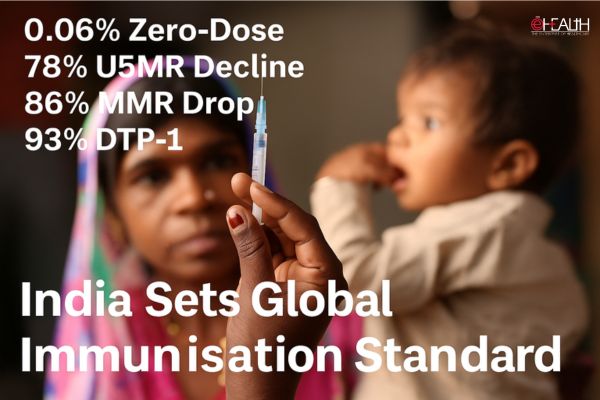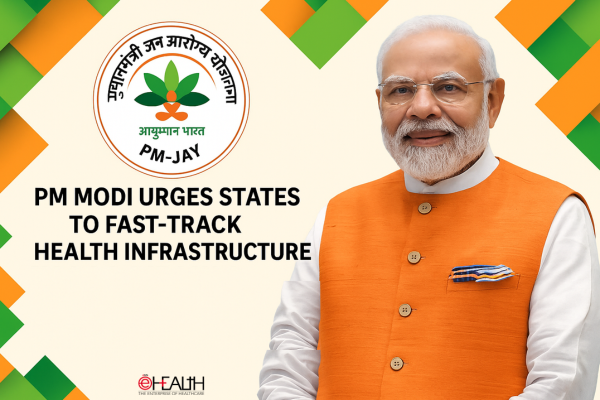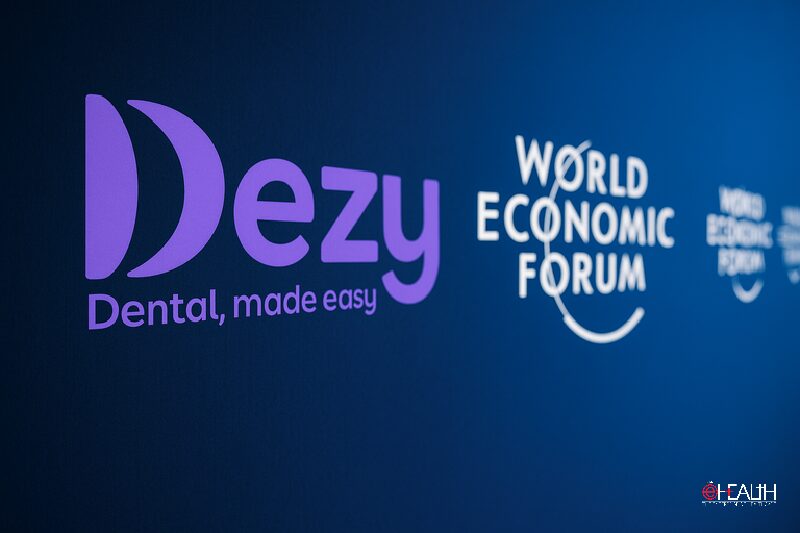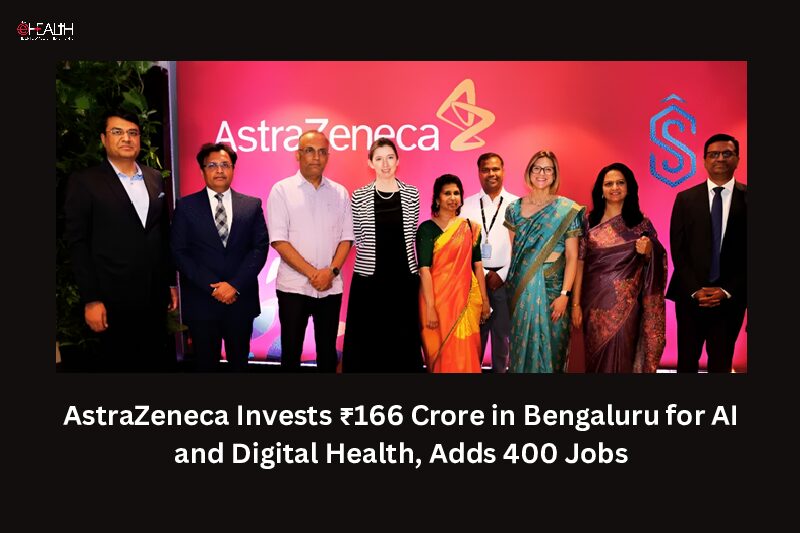
India has been lauded as a global leader in child health and immunisation, following a series of remarkable improvements in vaccination coverage and mortality reduction. According to the latest reports by the United Nations Inter-agency Group for Child Mortality Estimation (UN IGME) and the UN Maternal Mortality Estimation Inter-Agency Group (UN-MMEIG), India has made consistent and substantial gains across various health indicators, positioning itself as a global model in public health delivery and vaccine equity.
Sharp Decline in Zero-Dose Children
The proportion of zero-dose children, those who have not received even a single routine vaccine, has seen a dramatic drop in India, declining from 0.11% in 2023 to 0.06% in 2024. This reduction, achieved despite the country’s vast population, places India among the top-performing nations globally and reinforces its commitment to equitable healthcare access.

This progress has been widely acknowledged by global bodies. The UN IGME 2024 report highlights India’s exemplary strides in child health, while the country was recently honoured with the Measles and Rubella Champion Award at the American Red Cross Headquarters in Washington, D.C.

Immunisation Milestones Backed by Robust Systems
India’s Universal Immunisation Programme (UIP), one of the world’s largest, has been a cornerstone of these achievements. The programme now includes 12 vaccines protecting against preventable diseases like diphtheria, polio, hepatitis B, pneumonia, rotavirus, and measles-rubella. Annual outreach efforts cover 2.6 crore infants and 2.9 crore pregnant women, facilitated by 1.3 crore immunisation sessions held nationwide by frontline workers, including ASHAs and ANMs.

Initiatives like the Zero Dose Implementation Plan 2024, rolled out in 143 districts across 11 states, and Mission Indradhanush, which has vaccinated 5.46 crore children and 1.32 crore pregnant women since 2014, have played pivotal roles in bridging the immunisation gap.

Remarkable Health Indicators Outpacing Global Trends
The impact of immunisation on child and maternal mortality is evident. According to the UN IGME report, India recorded a 78% decline in Under-Five Mortality Rate (U5MR) between 1990 and 2023, well above the global average decline of 61%. Similarly, Neonatal Mortality Rate (NMR) saw a 70% reduction, outperforming the global decline of 54%.
In maternal health, India has recorded an 86% decline in Maternal Mortality Ratio (MMR) since 1990, with current estimates at 80 per lakh live births, a notable improvement over the global average reduction of 48%.
Leveraging Technology & Community Engagement
India’s strategy emphasises not only vaccine supply but also targeted demand generation. The U-WIN platform, a digital tool for tracking immunisation, ensures that no child is left behind. Simultaneously, public awareness campaigns, through mass media, social platforms, and community outreach, continue to address vaccine hesitancy and misinformation.
Village Health and Nutrition Days (VHNDs), National and Sub-National Immunisation Days, and dedicated task forces at state, district, and block levels further ensure operational effectiveness and grassroots mobilisation.
Global Comparisons Reinforce India’s Leadership
Despite challenges posed by its demographic and geographic diversity, India’s vaccination coverage rates for key antigens consistently exceed global averages. According to the WUENIC 2023 report, India’s DTP-1 (Penta-1) coverage stands at 93%, significantly higher than other high-burden nations like Nigeria (70%) and Pakistan (78%). Dropout rates from DTP-1 to DTP-3 have also decreased from 7% in 2013 to just 2% in 2023.
In comparison, countries such as Yemen (1.68%), Sudan (1.45%), and DR Congo (0.82%) have a far higher percentage of zero-dose children relative to their populations.
A Model for the Global South
India’s experience offers critical lessons for other developing nations, particularly in Africa and Southeast Asia, grappling with low immunisation rates. Its focus on last-mile delivery, real-time tracking, inter-sectoral coordination, and community engagement has enabled scalable solutions that can be adapted elsewhere.
The Government of India’s sustained commitment, exemplified by the elimination of Polio (2014) and Maternal & Neonatal Tetanus (2015) and the recent launch of the Measles Rubella campaign (2025), is a testament to its vision of universal health coverage.
Moving Forward
India’s immunisation journey is not just a success story in numbers, but a reflection of strategic planning, technological integration, and grassroots mobilisation. As the country continues to expand vaccine access and tackle zero-dose challenges, it stands as a compelling case study for the global health community, demonstrating what is possible when policy, partnerships, and people align toward a common goal.
Be a part of Elets Collaborative Initiatives. Join Us for Upcoming Events and explore business opportunities. Like us on Facebook , connect with us on LinkedIn and follow us on Twitter , Instagram.
"Exciting news! Elets technomedia is now on WhatsApp Channels Subscribe today by clicking the link and stay updated with the latest insights!" Click here!
















